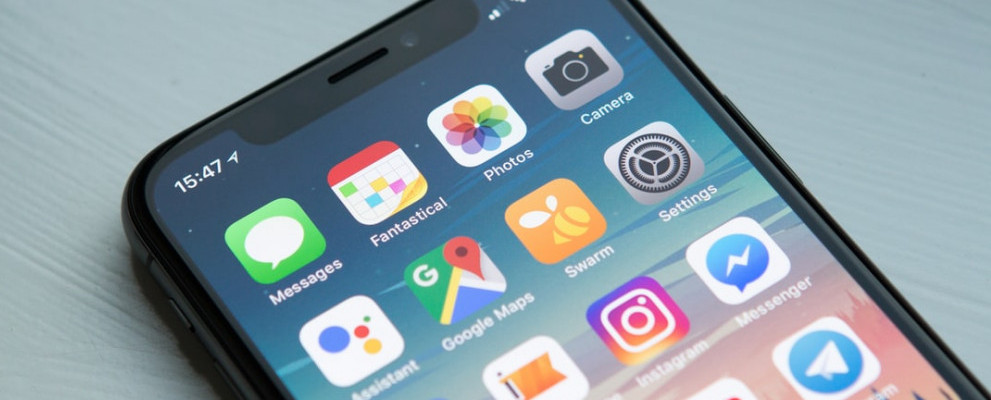One tool a lot of teachers do not use are English Language Apps. They may be seen as a threat by some teachers and are not offered for that reason. The threat being that the student can study and learn alone and has no need of the teacher. Although I have found most students do not have the self motivation to study alone. And they also prefer to study in a group that is at the same level as them.
But learning English in a class environment doesn’t work for everyone. For different reasons some people enjoy learning a language on their own. And one of the best ways of doing it alone are by using an app.
To understand the use of apps we need to understand why some people like to learn by themselves.
1) Time constraints: You might not have enough time to study formally in the classroom 4 – 6 hours per week. Using an app gives you control of when and how long the lesson is.
2) Disabilities: The student may have a disability that precludes him or her from learning in a classroom. Some classrooms are now using assistive technology to help the impaired. It is still difficult to find these classes in ESL ( English as a Second Language) environments.
3) Shyness: Extreme shyness in any social situation limits the effectiveness of group study and learning. For these people using an app to learn a language is a way around that.

Best Language Learning Apps
Babbel. Babbel looks like a fun app and a very good way to learn from the ground up. It rates highly in teaching English and offers a 7 day free trial. Babbel teaches reading, writing , listening and speaking. It offers courses for fourteen languages including English.
Mondly. Mondly is a very easy app to use and was named app of the year by Facebook and Best new App by Apple. It has over 70 million downloads. Learning is done by a conversation focused curriculum. Its’ focus is on phrases not individual words. Mondly has 41 languages including English. Mondly starts from $4.00 per month.
U Talk. U Talk has 140 plus languages to learn including English. U talk uses a teaching style called dual coding which link both sides of the brain. The left which controls language and the right which handles visual infomation. It does this by linking a word to an image.
Duo Lingo. Duo Ling is an American language learning website and mobile app. It is also a digital language proficiency assessment exam. This is a free app, however they also offer a premium service for a fee. The premium service removes adds and supports free education. The Duolingo English test is reported on a scale of 10 to 160. Overall scores include a general description of what you can do. While the sub-scores measure your proficiency in specific areas. For example Conversation – the ability to listen and speak. Literacy – the ability to read and write. Comprehension – the ability to read and listen. Production – the ability to write and speak.
Preply. Preply provides online English Tutors and Teachers. The courses cover; English for work, English speaking practice, English for life abroad, English for exams, English for kids, English for business. Preply English is a professional program designed for teams and organizations offering tailor made solutions with on line tutors. They have easy to use video and audio tools and provide English language learning videos via Preply Space.
Using apps to learn English gives you another way in which to study. There is no right way or wrong way, there is just the way that is best for you. Whether you use the immersion method, the classroom method or the dual method ( which is a combination of the immersion method and the classroom method.) , experiment until you find the one method that fits your daily life and learning style the best! My preference is Mondly, it is an intuitive app.


As English is used worldwide, it is essential to get to grips with it if one wants to get ahead in corporate business. I’m not sure if these apps would be useful for learning jargon for example legal speak, engineering speak or similar.
But apps are very innovative and have come a long way, so maybe I’m wrong here. Only time will tell. However, I am interested in translation apps that can translate English to other languages. That would be great to have.
Apps are not the best option to teach or learn a language, but for some going to a school is not an option because of price. Also some students do not thrive in the classroom but work better alone. I am all for students attending an English school. I have two ESL schools in Vietnam. Before you teach business language skills the student must understand the basics. Also giving other options to learn means you care.
Thanks Stella for your comments.
Howdy!
I’ve been a teacher for quite some time now, and I agree that many teachers don’t use these apps because they see them as competition for some reason. They are an essential tool, I believe, that all teachers should use to make their jobs easier and also help with their students’ learning!
Great article! Keep up the good work!
Anything that helps the students is ok with me. Thanks for the comments.
Great article! I’m an IT Instructor that has never been challenged by any language barriers; therefore, it is difficult for me to comment as to the practicality of using apps to provide formal instructions. Nonetheless, I personally familiar with Dou Lingo and Babbel.
I believe it is admirable to incorporate any and all tools necessary to achieve your goals. Keep up a good fight!
Canty